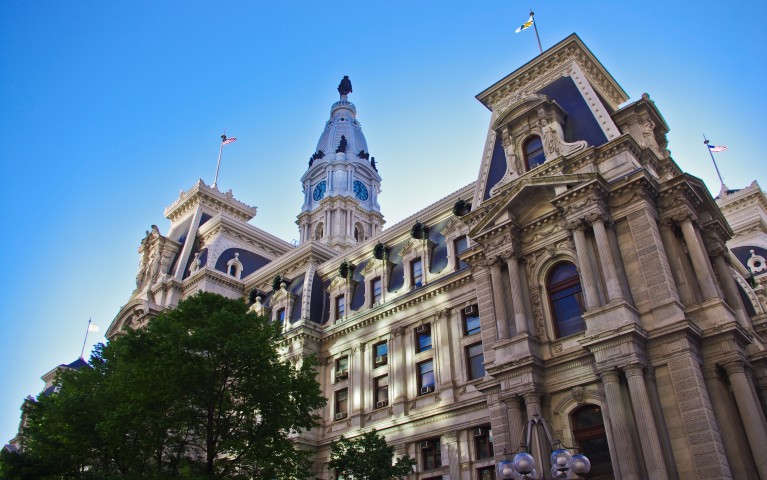Testimony: FY23 Budget Public Hearing

An abbreviated version of these remarks from Sister Mary Scullion were presented to City Council on Tuesday, May 24 by Jennine Miller, director of Advocacy and Community Engagement.
...
My name is Sister Mary Scullion, and I am the Executive Director of Project HOME, a Philadelphia non-profit organization empowering individuals to break the cycle of poverty and homelessness through affordable housing, employment, health care, and education. Every day we see first-hand the need for housing. Because of that need, we have developed 976 units of affordable and supportive housing for persons who have experienced homelessness or who are at risk of homelessness in the City of Philadelphia and this year we will proudly open our 1,030th unit at the Fitzgerald Recovery Residence in Kensington. We also collaborate with all street outreach teams through the Homeless Outreach Coordination Center for the City of Philadelphia and run the Hub of Hope in SEPTA’s concourse at Suburban Station that serves about 300 guests each day.
Our current priorities include:
- Prioritizing funding for recovery-focused housing – because we know it works: 94% of Project HOME residents remain stably housed and are on their way to permanently breaking the cycle of homelessness through residing long-term in permanent supportive housing or more independent housing. Philadelphia needs both new recovery housing, long-term recovery-focused options, and access to addiction treatment on demand.
- Providing housing, education, and employment supports for young people exiting foster care, and/or identifying as LGBTQIA+. We ask that Council specifically set aside resources for the housing and services needs of homeless young adults who identify as LGBTQIA+.
- Ensuring that people who are on the streets have access to quality diversity, equity, and inclusion-informed services on their path to a more permanent home, including but not limited to:
- Ensure that all entry-level programs are wheelchair-accessible and appropriately configured to meet varying physical needs
- Ensure that the emergency response system provides a more appropriate (unarmed) response to assist people in behavioral health crisis
- Remember that services are as important as housing - that people on the streets and in emergency housing need quality services such as education, employment, and medical care (including recovery services)
During Council’s previous budget hearings, we heard a lot of concerns about the “humanitarian crisis” in Kensington. With the increasing needs for recovery throughout our entire City, we are asking Council and the City to prioritize recovery housing and supportive services and incentivize providers to create or expand recovery housing programs for those experiencing homelessness. Directing flexible funds from the Department of Behavioral Health and Intellectual disAbility Services (DBHIDS) and the Office of Homeless Services (OHS) for housing and services for people who have recovery needs is an important element to ending homelessness in our city. Specifically, even without increasing the City’s budget commitment, we are asking Council to support a priority within the City’s Continuum of Care process for recovery-focused housing. We also have a pending funding request under consideration by the City to support our newest residence for people aged 55 and over who have been homeless and seek housing and recovery, because both housing and services for people who are aging and need recovery support are crucial.
LGBTQ young adults comprise one of the fastest-growing segments of the homeless population. An estimated two out of five homeless youth identify as LGBTQ and many become homeless upon coming out. We ask that Council specifically set aside resources for the housing and services needs of homeless young adults who identify as LGBTQIA+.
The pandemic has exacerbated already-grave needs for quality services to people on the streets, including shelters and housing that are wheelchair accessible; plans for times like COVID when shelter beds are terribly insufficient to meet demands; and housing WITH services that break the cycle of street homelessness. We are asking Council to fund new programs, services, and capital investments to address these issues.
Finally, we see a real need for strategic investments to ensure that the emergency response system does not send police to people who are experiencing mental health crises on the streets. We ask Council to seriously consider changes to the budget that reflect a priority on providing social service solutions to social problems, rather than relegating them to police or other system response.
We know that when people have access to recovery supported housing, it makes a difference. John, a new resident at Project HOME asked me to share his story. After his apartment was sold in Brewerytown, he ended up living on the streets in Kensington in a wheelchair because of a hip infection. He was able to connect with a shelter and rehab program that helped him move towards sobriety. He now lives in permanent housing at Project HOME and credits his continued recovery to supports like case management, long term treatment, access to methadone, and a supportive community. He told me, “It helps me to live in supportive housing with other people around who have been there and understand. I wish that everyone could have this same level of housing. I try to encourage others to get into a better place, now we just need to make sure that there is funding and places for people to live.”
All budgets are about priorities, and we know that City Council can make a difference in the lives of the most vulnerable Philadelphians, including people seeking recovery housing, LGBTQIA+ young adults, all people living on the streets including people who are aging. Thank you for hearing our testimony today and for helping us achieve our vision that “None of us are home until all of us are home.”